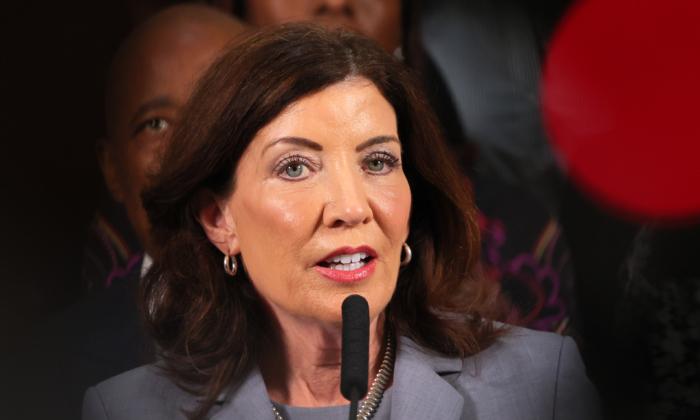The Market Composite Index (MCI), a measure of mortgage loan application volume, showed a 5 percent drop in total seasonally adjusted mortgage applications for the week ending April 15, the lowest figure seen since February 2019. The drop is largely due to rising interest rates.
On an unadjusted basis, the MCI decreased 4 percent compared with the previous week.
There was also an 8 percent drop in refinancing applications from the previous week, which was 68 percent lower than the same week in 2021.
The seasonally adjusted purchase index declined 3 percent from the previous week, while home purchase mortgage applications were down 14 percent from the same week in 2021.
The average interest rate on 30-year fixed-rate jumbo mortgages jumped 8 basis points to 4.76 percent, with points increasing to 0.46 from 0.37 from a week prior.
The effective rate, which includes the effects of compounding, rose to 5.39 percent, according to the MBA.
“Ongoing concerns about rapid inflation and tighter US monetary policy continued to push Treasury yields higher, driving mortgage rates to their highest level in over a decade,” said Joel Kan, MBA’s associate vice president of economic and industry forecasting, in the MBA report.
“The 30-year rate has increased 70 basis points over the past month and is 2 full percentage points higher than a year ago. The recent surge in mortgage rates has shut most borrowers out of rate/term refinances, causing the refinance index to fall for the sixth consecutive week,” Kan said.
New home buyers are seeing their purchasing power erode as housing prices keep rising.
“In a housing market facing affordability challenges and low inventory, higher rates are causing a pullback or delay in home purchase demand as well. Home purchase activity has been volatile in recent weeks and has yet to see the typical pick up for this time of the year,” he concluded.
Kan further added that Adjustable Rate Mortgages (ARM), which were neglected during the two years of low rates during the pandemic, are seeing a renewed interest, making up 8.5 percent of total applications the previous week.
“As ARM loans typically have lower rates than fixed rate mortgages, and as this spread has widened, ARM loans have become more attractive to borrowers already facing home purchase loan amounts close to record highs,” said Kan.
The refinance share of mortgage activity decreased to 35.7 percent of total applications from 37.1 percent the previous week.
Meanwhile, the MBA’s refinancing index fell 7.7 percent to the lowest level since March 2019, and it estimates that refinances will fall 64 percent to $841 billion in 2022, followed by a 20 percent drop in 2023.





